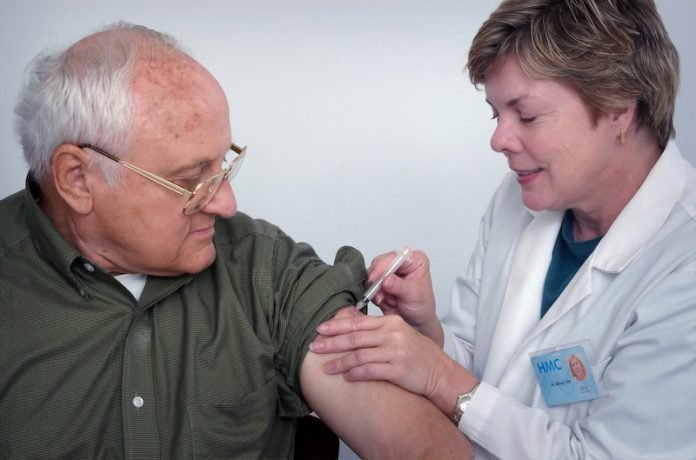
In a new study, researchers found that people who already had COVID-19 may step aside and give their place in the vaccine line to someone else.
The finding suggests that prioritizing people who have not yet had COVID could allow hard-hit communities to stretch those first doses farther and get to some of the herd immunity effects sooner.
The research was conducted by a team at the University of Colorado Boulder and elsewhere.
In the study, the team used mathematical modeling to determine how different distribution strategies could play out in cities around the globe.
They found that if, in general, saving lives is the objective, enabling people 60 and older to go to the front of the line works best.
If reducing future infections is the goal, however, the 20- to 49-year-old crowd should get the first doses. In very few cases did vaccinating children first make sense.
The researchers used demographic data—including age distribution and published contact rates amid and between different age groups—from countries around the world.
They also drew on information on the percentage of people who are already “seropositive” or previously infected with the virus in different locations.
Then they modeled what would happen in five different scenarios in which a different group got to be first in line: Children and teenagers, adults between the ages of 20 and 49, adults aged 20 or older or adults aged 60 or older.
In the fifth scenario, there was no distribution strategy and anyone who wanted a vaccine got one while supplies lasted.
Results from the United States, Belgium, Brazil, China, India, Poland, South Africa and Spain are included in the paper.
In communities where COVID had already infected large swaths of the population, prioritizing those who are “seronegative” or did not already test positive for the virus, could allow health agencies to stretch the vaccine farther and save more lives.
For instance, in New York City where 27% of people have already been infected, vaccinating one in five people over age 60 could bring mortality down by 73%.
Just how might a city go about identifying people who’d already been infected?
In cases where vaccine availability was scarce, the team said, it might be worth having individuals take an antibody test before getting the vaccine.
Alternatively, people who’d already had COVID-19 could just be asked to consider sparing their dose for someone who does not already have partial protection from the virus.
In a city like Boulder, however, where only a small percentage of people have already been exposed, testing people prior to vaccination might not yield enough benefit to be worth the effort.
The researchers hope that state governments will consider the local status of the epidemic in their decisions about who to prioritize.
One researcher of the study is Dan Larremore, a computational biologist.
Copyright © 2020 Knowridge Science Report. All rights reserved.



